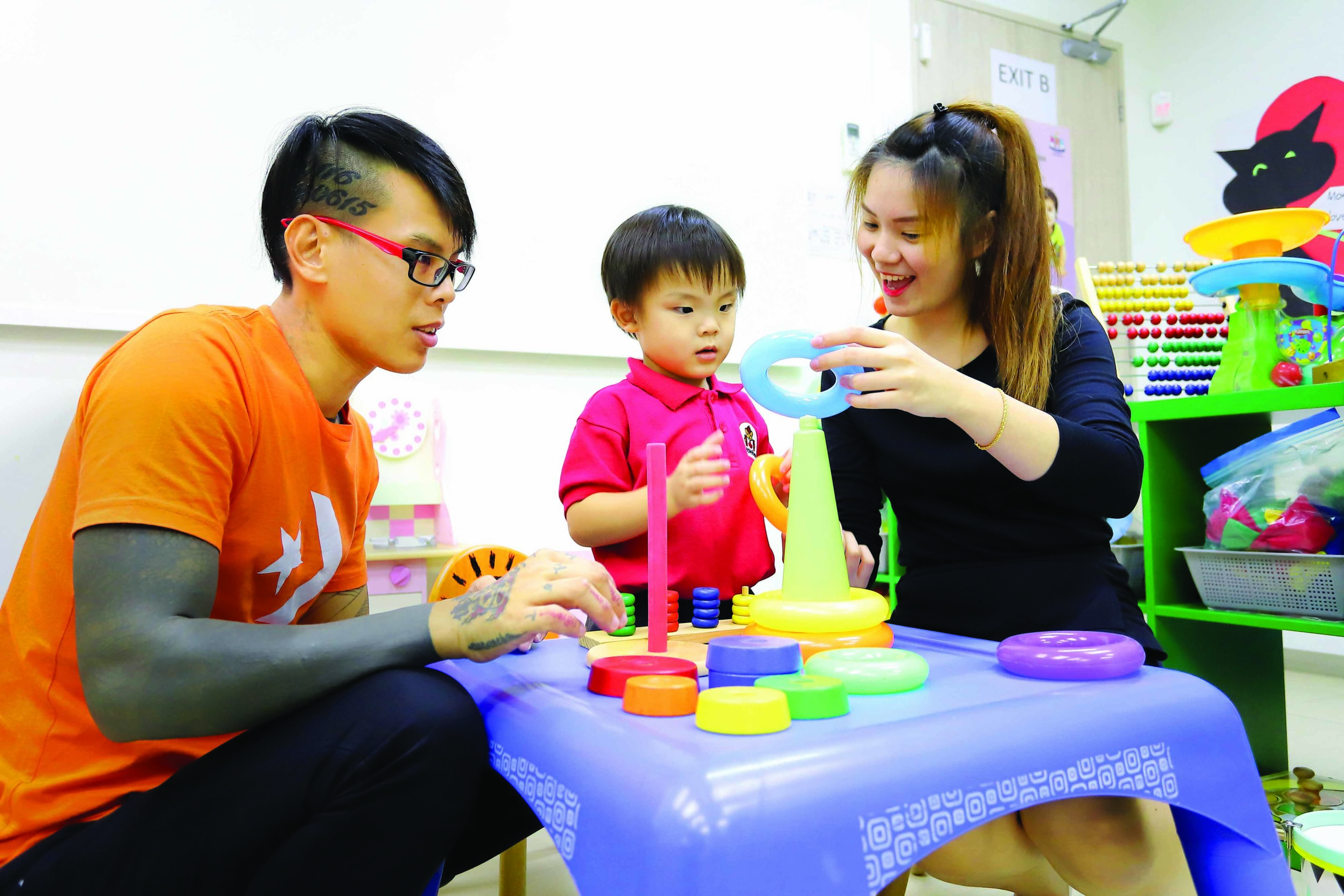Kids Integrated Development Service (KIDS) 0-3

The first thousand days of a child’s life are the first opportunity, and a critical period, to lay strong foundations for optimal development in children.
The Temasek Foundation Care Kids Integrated Development Service 0-3 programme was piloted in July 2014 to optimise the developmental potential of young children from vulnerable families through a multi-layered and integrated community health and social care support system. A partnership between KK Women’s and Children’s Hospital (KKH), AMKFSC Community Services Ltd (AMKFSC), and Temasek Foundation, the programme included home visitations and centre-based activities coordinated by a cross-sector, multi-disciplinary team.
The programme model was developed based on evidence from early childhood learning and intervention programmes, and reviews of successful models of support, in other countries. It also drew on findings of a study on families in Singapore with challenging socio-economic backgrounds, commissioned by KKH and funded by Temasek Foundation.
An overall assessment found that:
- Effective support for vulnerable families should adopt a systematic approach to include the involvement of multiple community-based agencies.
- A significant number of children from challenging socio-economic backgrounds have developmental delays.
- An integration of medical, health, social and community services using scientific and evidence-based approaches is required to support the optimal growth and development of children from vulnerable families, who have complex and varied needs.
- Support for mother and child should begin from the pregnancy stage and should continue for the child up to the age of three years, covering the critical formative years.
- Child Health – There were significant improvements in the immunisation rate; and birth weight of the children born to mothers who were in the programme during the antenatal phase.
- Child Development – 97 per cent of children in the programme were assessed to have normal cognitive ability, which is significantly higher compared to other study findings among children from families with challenging socio-economic backgrounds.
- Child Behaviour – A smaller number of children in the programme were found to have emotional and behavioural problems compared to other studies in Singapore using the same measurement tool.
- Family Function – As families grow with the programme, parents have shown an increased ability to help their children learn, and to find the right resources when they need help.
- Parent-child Interaction/Bonding – A large number (≥ 96 per cent) of parents in the programme were able to show appropriate parent-child interaction to help their child learn and develop. This is important as appropriate parent-child interaction also correlated with better cognitive and language development in the children.
The KIDS 0-3 programme supported 178 children and their mothers from 2014 to 2019.